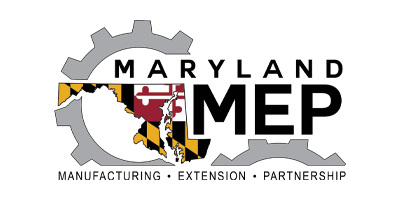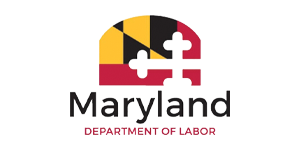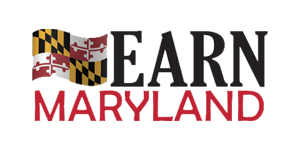EXCEPTIONAL LEADER
PROGRAM
The Exceptional Leader Program is a high-impact, comprehensive, six-session leadership mastery program geared toward established and emerging leaders and is ideal for supervisors, managers, and project managers. This program is designed to upgrade the management skills of leaders and dramatically increase their effectiveness.
This program is ideal for current leaders or employees who are slated for a leadership role in the next year. This program focuses on specific skills and strategies for managing people such as how to lead people effectively through coaching, developing, engaging, and holding crucial conversations. Participants will also learn tangible skills for better planning and productivity.
Participants will attend 6 meetings (held virtually through Zoom or in-person) from 12:00pm – 3:30pm
Program topics include:
This module is designed for busy professionals who want to increase productivity and have more time for the most important areas that will improve your business. Managers will learn how to effectively organize their work, focus on the important tasks, reduce procrastination, implement structures to increase efficiency, and learn techniques for planning and achieving goals.
Participants will also learn how to manage their energy and draw on the sources of energy to become more productive. Clients who have implemented these strategies have typically seen at least a 20% increase in productivity.
Session learning objectives:
- Understand what holds us back from being productive and managing time efficiently and effectively.
- Identify personal habits that are not serving the manager in their role.
- Learn specific techniques and strategies for managing time to start using immediately.
- Learn how to effectively delegate to employees for maximum efficiency and for employee development.
- Learn how to “Eat That Frog” for achieving the most important projects that get the best results.
- Learn how to motivate yourself into action and stop procrastinating.
- Learn how to effectively plan your day, week, month, and year.
- Learn how to manage your energy for maximum performance.
- Learn how to hold others accountable for managing their time and meeting deadlines.
- Learn how to use these techniques with your team to ensure better efficiency and effectiveness.
Coaching is a partnership you form with an employee that focuses on helping them learn and develop. As the coach/manager, the objective is to guide employees toward organizational goals. By taking a coach-approach with employees, managers can improve work performance, productivity, and ultimately success in their jobs. Coaching is an ongoing process and can be used when the need or opportunity arises.
This workshop is designed to teach managers coaching skills that can be used with their employees to illicit better performance and development. The workshop provides specific tools and techniques to use with employees to gain more commitment, maintain a positive relationship, and increase performance and results. Strategies such as designing the manager-employee relationship, asking powerful questions, active listening techniques, establishing goals and expectations, and holding employees accountable will be shared. In addition, managers will learn how to hold an effective performance evaluation meeting.
Session learning objectives:
- Understand what coaching is and how the coach approach can improve work performance and productivity.
- Understand why coaching works better than other management strategies.
- Identify when you should use coaching in the workplace.
- Learn specific techniques and strategies to start using immediately.
- Learn the importance of defining expectations, setting goals, and conducting informal performance reviews.
- Learn how coaching makes your life easier as a manager!
- Learn how to stop employees from “upward delegating” and coaching them to handle situations on their own.
- Learn how coaching maintains a more positive relationship with employees and often eliminates uncomfortable performance discussions.
- Learn techniques for setting goals and expectations and holding employees accountable.
- Learn how to hold development conversations with employees and how to develop employee skills and increase their learning.
Workers have more choices than ever before, which makes it more important than ever for organizations to engage and retain their employees. Leaders have never been more challenged as they must engage and motivate staff to maintain productivity and profitability. This module will teach managers how to effectively recognize employees, and what employees really want from their managers and the organization. Managers will gain a deep understanding of behaviorism, and learn that it’s not about the money when retaining key employees. Specific tools and strategies for motivating, appreciating, and rewarding employees will be provided that can be implemented immediately. This module will also provide powerful low-cost and no-cost strategies for rewarding employees and increasing productivity.
Session learning objectives:
- Understand what motivates employees and keeps them loyal to an organization.
- Learn how your management style can help retain key employees and keep them happy.
- Learn specific techniques for recognizing and rewarding employees.
- Understand what behaviorism is and how this knowledge can help managers retain key talent.
- Learn how to motivate employees and be a manager who is respected and open.
- Learn the importance of defining expectations, setting goals, and conducting informal performance reviews.
Communication in the workplace is not always easy. Whether it’s a confrontation with a difficult co-worker, or an important conversation with the boss, difficult or critical conversations often intimidate us. This workshop provides strategies for preparing for high-stakes situations, overcoming barriers to meaningful communication, increasing clarity and improving understanding, and handling strong emotion—on both sides. Implementing these tools will help managers to be persuasive and handle all types of conversations.
This module will also teach managers how to hold effective conversations with employees for improved work performance. Managers will learn how to hold uncomfortable conversations with employees, as well as how to make these conversations more effective and supportive so they get the best performance from employees.
Session learning objectives:
- Learn the four toxic communication styles in relationships and teams that corrode the team over time.
- Learn how to master your stories and stay in dialog when you’re angry or upset.
- Learn techniques for noticing when a conversation turns crucial and how to deal with people who use silence or verbal violence.
- Learn how to prepare for a difficult conversation to maximize success.
- Learn a step-by-step process for handling an important or difficult conversation.
- Learn how to have effective conversations with employees for maximum performance.
- Understand how using “perspectives” can improve interactions.
- Learn tools for how to speak persuasively, not harshly.
- Learn how to deal with someone who blows up or lashes out.
- Learn strategies for implementing these tools into your everyday life so you will see improved relationships.
One of the biggest challenges in organizations is the lack of personal accountability in the workplace. Managers often have lofty visions and goals yet have a difficult time delegating projects and tasks and holding employees accountable for achieving results. Managers often avoid accountability because they think of it from a negative perspective. This module will teach managers strategies and tools for holding individual employees as well as a team accountable to get results. Managers will also learn why it’s important to delegate, and how it cannot only improve the performance of the team, but also their performance as a manager. The module will cover specific techniques, one-on-one session structures, and team meeting structures that will provide a foundation for delegating and holding employees accountable with maximum success. By putting these tools in practice, managers will become disciplined in getting things done through their team and achieve greater success.
Session learning objectives:
- Understand the obstacles to accountability and the motivations behind not holding people accountable.
- Learn how to enhance performance by holding others accountable in a positive, principled way.
- Understand the importance of defining expectations, setting goals, and conducting informal performance reviews.
- Learn a framework for communicating projects and tasks to employees that will increase ownership and accountability.
- Learn techniques for delegating effectively and following up to ensure fulfillment.
- Learn how to manage unmet expectations when people fail to deliver.
- Learn a model for holding discussions around unmet expectations to ensure improved performance.
This module will incorporate the learning from all the modules to reinforce the leadership behaviors and skills and ensure managers will implement them effectively with their teams. We will review the core skills learned over the program, as well as discuss how to take their leadership to the next level. Managers will learn the key behaviors that often hold leaders back from achieving their highest potential and progressing through the organization. We will discuss the top twenty habits and interpersonal issues that hold managers back from progressing in their leadership role.
Session learning objectives:
- Bring all the skills and competencies learned during the program full circle.
- Solidify the learning by reviewing the skills and core competencies and teaching managers how to continue to apply what they have learned after the program.
- Leave the session with techniques and tools for handling real challenges managers are currently facing.
- Understand emotional intelligence, and the aspects of emotional intelligence that are necessary for leadership success.
- Learn from a group discussion about what is working and what development opportunities remain.
- Understand the 7 Habits of Highly Successful People and how to increase leadership success.
- Develop an individual plan of action to continue the learning and increase leadership skills.
This program has proven to be successful because the leaders have an opportunity to learn over the course of three months rather than all at once. This allows your leaders to go away after each session and implement new skills deliberately and get the support they need along the way. Our program includes homework and accountability to ensure your leaders are applying their learning. This is truly an active and participatory workshop rather than a class where leaders are just learning principles and theory.
Program Champions



Participant Testimonial
Program Coordinator
For more information about the Exceptional Leader Training Program, please contact:
Sara Keith
Registration is currently open for the 2025 Exceptional Leader Program.
The 2025 Exceptional Leader Program is currently underway. Stay tuned for the next Exception Leader Training Program!


About the Instructor:
Laurie J. Maddalena MBA, CSP, CPCC
CEO, Envision Excellence
Laurie Maddalena is CEO of Envision Excellence, a leadership development consulting firm that provides leadership development programs for managers and executives, executive and leadership coaching, management training, Myers-Briggs facilitation, Emotional Intelligence surveys and leadership assessments. Laurie has been personally mentored by Jack Canfield, author of The Success Principles, and is a certified Success Principles Trainer.
Laurie is a member of the National Speakers Association (NSA), and is a Certified Speaking Professional (CSP), a designation earned by less than 15% of speakers worldwide. She writes a monthly online column for next generation leaders for CUES, is a contributing writer on leadership for The Huffington Post and CUInsight, and has published articles in Credit Union Management.
She is a contributing author to the international best-selling book, Women Who Empower.
Laurie has worked directly with Brené Brown, a bestselling author and researcher, and is a certified Dare to Lead™ facilitator.
Prior to establishing her own coaching and consulting business, Laurie served as Vice President of Human Resources/Organizational Development at Montgomery County Teachers Federal Credit Union (MCT). Under Laurie’s leadership, MCT was awarded the “Excellent Place to Work” designation by the Maryland Work~Life Alliance for seven years in a row.
Laurie earned a Master of Business Administration (MBA) degree and a Master of Science degree in human resources/organizational development from The University of Maryland, University College. She also earned a bachelor’s degree in speech communication from Syracuse University. Laurie is a certified executive coach through The Coaches Training Institute, and completed team and organizational coaching training through The Center for Right Relationship and Team Coaching International.
Laurie lives in Maryland with her husband, Rino, and their three young children, Olivia, Luca and Clara. She loves good food and wine (especially Cabernet Sauvignon), plays tennis, is an avid reader and cappuccino lover.


